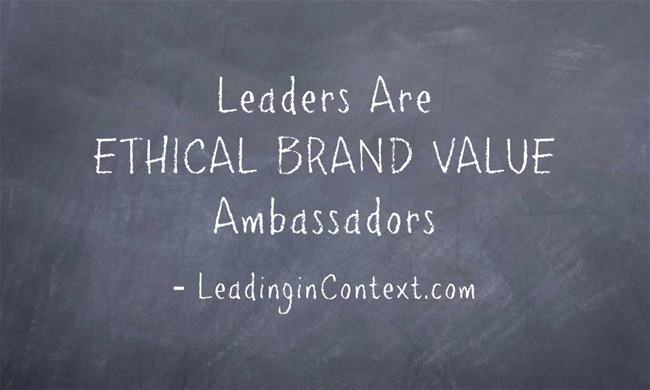By Linda Fisher Thornton
To celebrate 7 Lenses going into its second printing, this is the fourth post in a special series focused on Why Ethical Thinking Matters. In case you missed them, here are the previous posts in the series: Why Ethical Thinking Matters (Part 1),Why Ethical Thinking Matters (Part 2),and Why Ethical Thinking Matters (Part 3). Use the fresh perspectives shared in this series to guide your talent development plans for 2018.
You may already realize that ethical thinking is important, and if you do, I ask you to spread the word. To help you champion the cause in your organizations and on social media, I have included the business case below.
Ethics is an important part of brand value, so leaders need to be ready to model, implement, interpret and teach it. Teaching something to others and guiding them as they apply it requires a much higher level of skill than applying it only in one’s own work. To carry the company’s ethical brand value (EBV) forward, leaders will need to have mastered ethical thinking so they can guide others in how to use it. They will need to understand how ethics drives the economic engine of the company and the risks of a single ethical mistake that can reduce the company’s brand value in minutes.
Leaders are ethical brand ambassadors. They need to be able to handle ethical challenges themselves, AND teach others throughout the organization
To be ready for the higher level requirements of being an Ethical Brand Ambassador, leaders need clear ethical thinking. Here are some of the business reasons why that is so important:
Brand Value and Reputation Directly Impact Financial Results
“A business’s most valuable asset is its good name, its brand and reputation. In a recent survey released jointly by the World Economic Forum and the Fleishman-Hillard public relations firm, three-fifths of chief executives said they believed corporate brand and reputation represented more than 40% of their company’s market capitalization… Strong brand reputational value equals greater profits.”
Alexander F. Brigham Stefan Linssen, Your Brand Reputational Value Is Irreplaceable. Protect It! at Forbes.com
Ethical Business is A Powerful Consumer Trends
“…more sustainable, ethical, healthier modes of consumption that we’ve been tracking for years.”
Trendwatching.com
Leaders Guide Employees to Ethical Action
“Leaders ought to be a crucial source of ethical guidance for employees and should at the same time be responsible for moral development in an organization.”
Mihelič, Lipičnik, and Tekavčič, in the International Journal of Management and Information Systems
Ethics is the Heart of Brand Value
“In order to retain credibility, branding needs ethics at its heart”
Joshua Jost, Is Ethics the Saviour of Branding? Ethical Corporation
Keeping ethics at the heart of brand value relies on leaders who do more than just understand ethical thinking and action – they also need to live it and teach it to others throughout the organization.
Read the Next Post in the Series: Why Ethical Thinking Matters (Part 5)
©2018 Leading in Context LLC



Good morning Linda,
I couldn’t agree with you more. What I would add though is that we’re so focussed on brand and miss the value creation that can happen when we really ask tough ethical questions. If we adopt ethics as a practice then we can identify and address emerging issues. We can identify opportunities to serve employees, communities and stakeholders. We can change the way we do business in a way that is good for business.
LikeLike